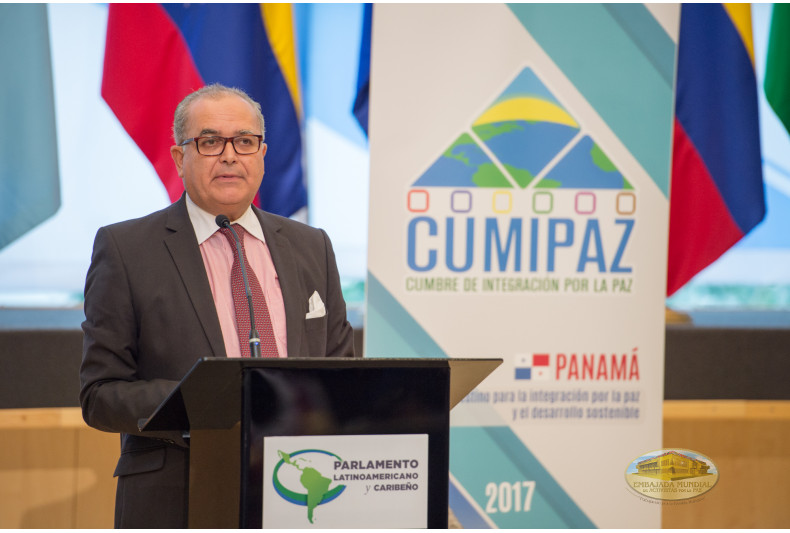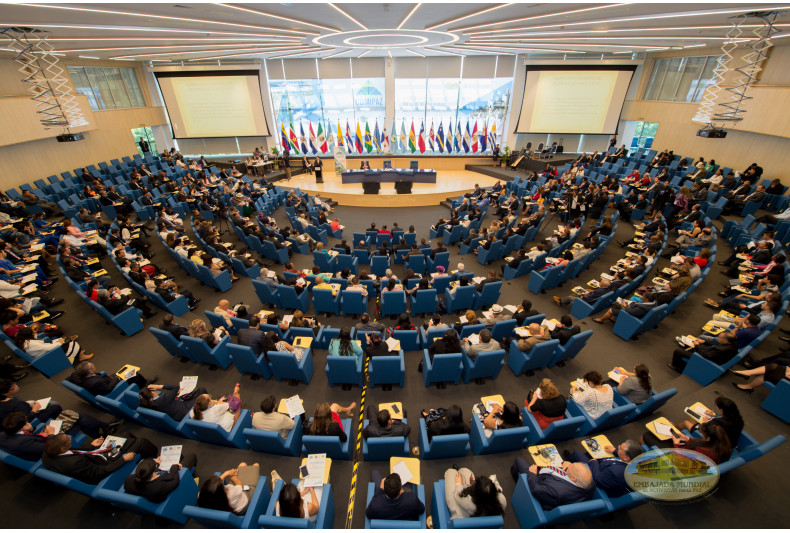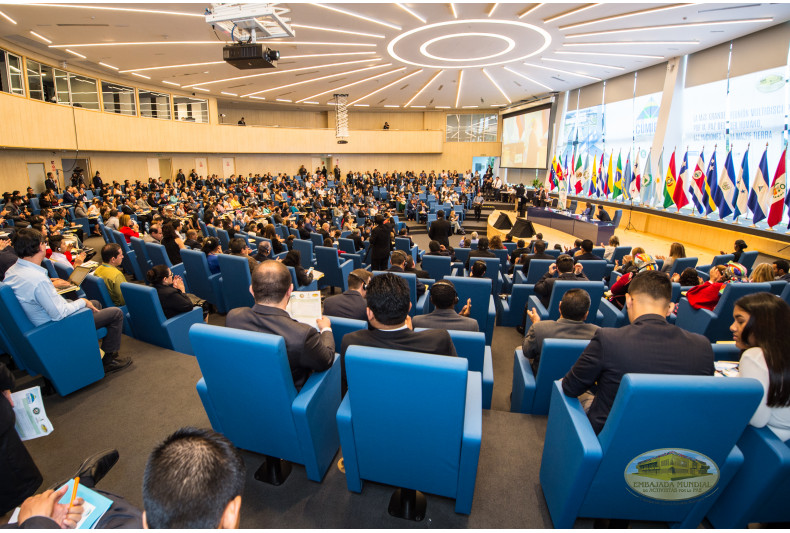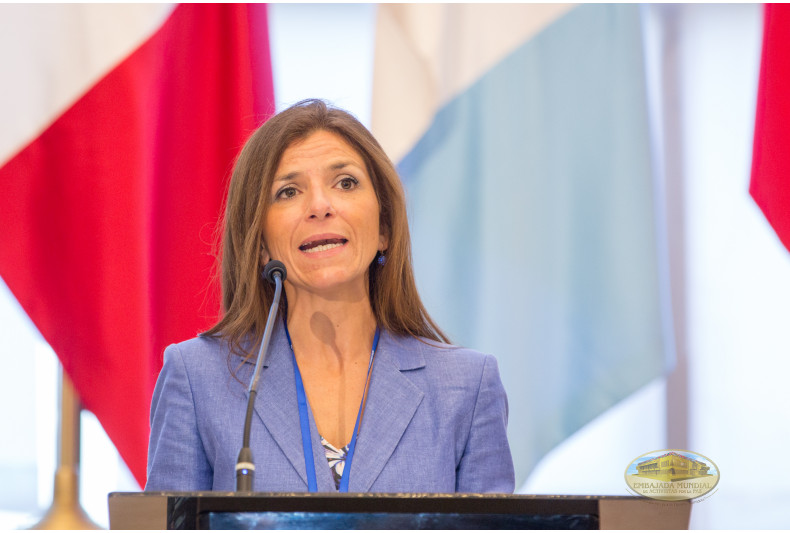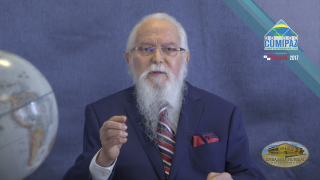Judicial leaders discuss ways to prevent genocide
See GalleryJustice and Democracy Session of the 3rd CUMIPAZ
At the headquarters of the Latin American Parliament in Panama City, judicial authorities from the Americas and Africa presented proposals on justice, democracy, and human rights to prevent genocide, among other things.
The presentations were developed as part of the Justice and Democracy Session of CUMIPAZ 2017-Panama, with an audience of ministers, high court magistrates, judges, prosecutors, district attorneys, and human rights specialists.
The exhibitions began with the participation of Camilo Montoya Reyes, Judge of the Superior Council of the Judiciary, Jurisdictional Disciplinary Chamber of Colombia, with the topic "International cooperation and universal justice.”
He emphasized that international crimes directly affect peace, security, and human dignity, and are the result from a joint participation of the States, or the product of a State policy.
"That is the great challenge facing the International Criminal Court; because investigating genocide, for example, requires the collaboration of States, and many times the States themselves are perpetrators of the genocidal atrocity."
On the other hand, he stressed that the international criminal cooperation is an instrument used by States in their reciprocal relations, and Honduras, Panama, and Colombia are an example of these terms of collaboration with the International Criminal Court (ICC).
Challenges of the International Criminal Court
Ania Salinas, auxiliary magistrate of the International Criminal Court of Chile, addressed the topic "Proposals for strengthening the autonomy and effectiveness of the International Criminal Court," noting that the ICC currently has several challenges for the success and permanence of the Criminal Justice System; of which he mentioned:
- Complementarity,
- legitimacy,
- and the effectiveness of the system.
He explained: Complementarity, because it should promote a global justice system made up of national courts as well as a series of regional and international bodies and courts.
"All of them are part of an interdependent system, in which institutions complement each other and can enrich each other in the task of promoting respect for human rights and the rule of law."
He also affirmed that the court has jurisdiction to judge only the most serious crimes, such as the crime of genocide, war crimes, and crimes against humanity, and that it does not yet have jurisdiction to prosecute the crime of aggression, when it has already been defined and recognized as part of the jurisdiction of the Court.
"The Court has not yet been activated, which will determine whether an act is marked within quite demanding categories, for which only the most serious, extremely severe actions will constitute crimes within the jurisdiction of the Court," he said.
Risks evaluation
"Challenges of international justice in the detection of warning signs and prevention of the genocidal atrocity" was the subject addressed by the African Court of Human Rights judge, Rafaá Ben Achour.
In his participation, he stated that risk assessment through policymakers and NGOs was important to predict and take appropriate action to stop a situation before it becomes a genocide.
"If it is not prevented, it would correspond to international justice, after having carried out the genocide, to focus on preventing another future genocide," he said.
In addition, he commented that justice for victims also plays an important role in repairing communities to prevent future genocide.
"This justice can take various forms, some common criticism of the trials is selective retroactivity and the highly politicized nature that often happens in trials," he said.


